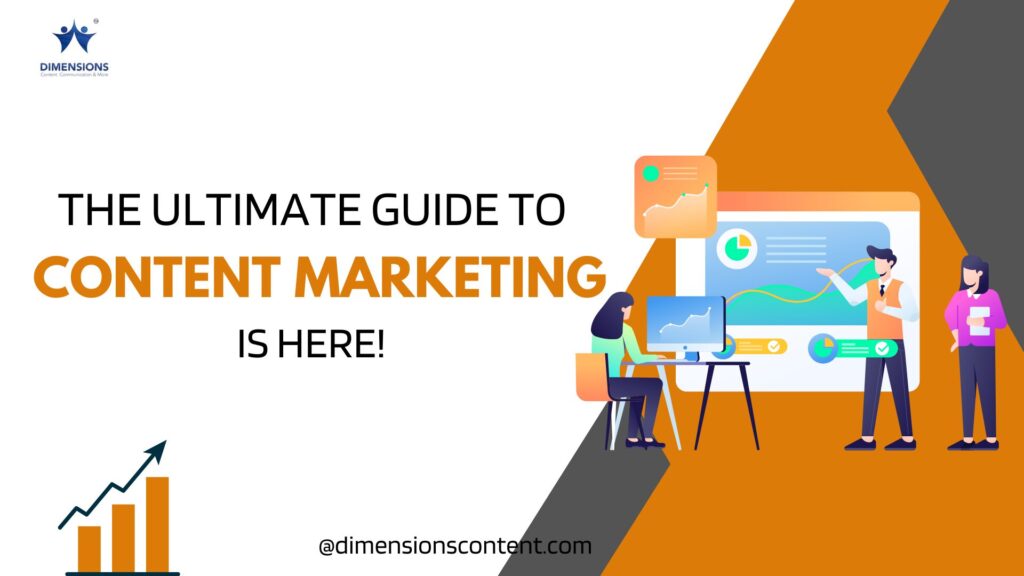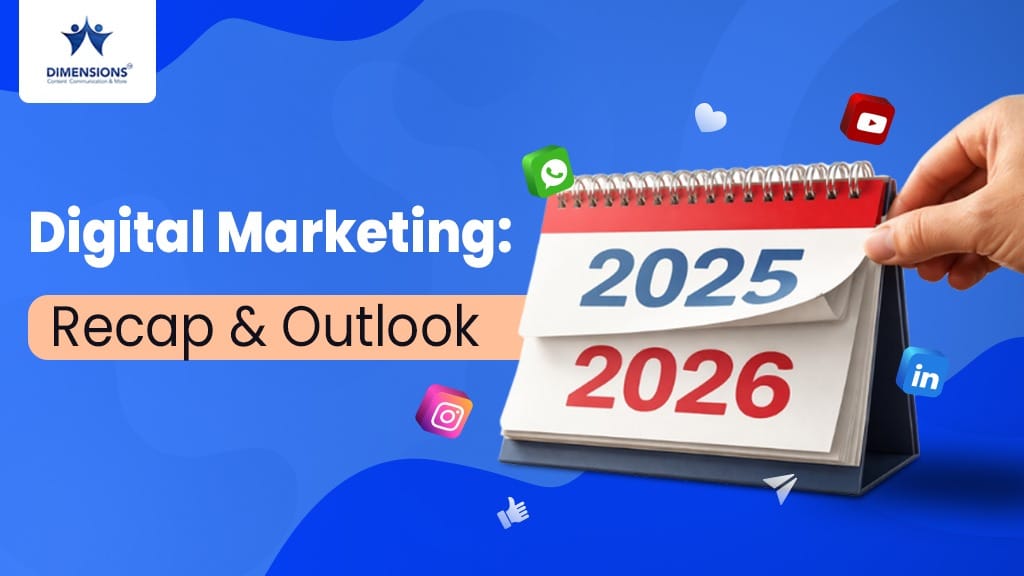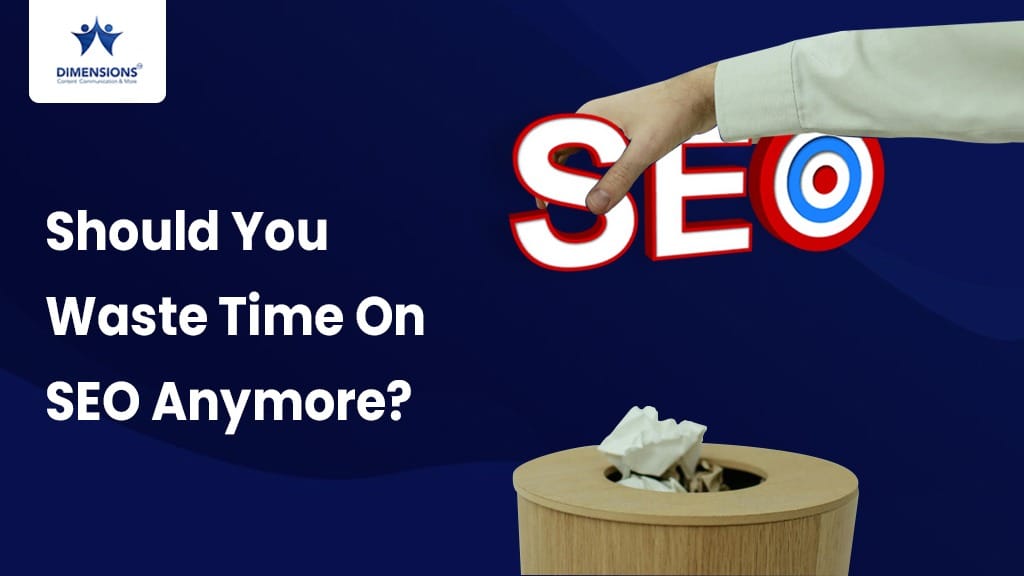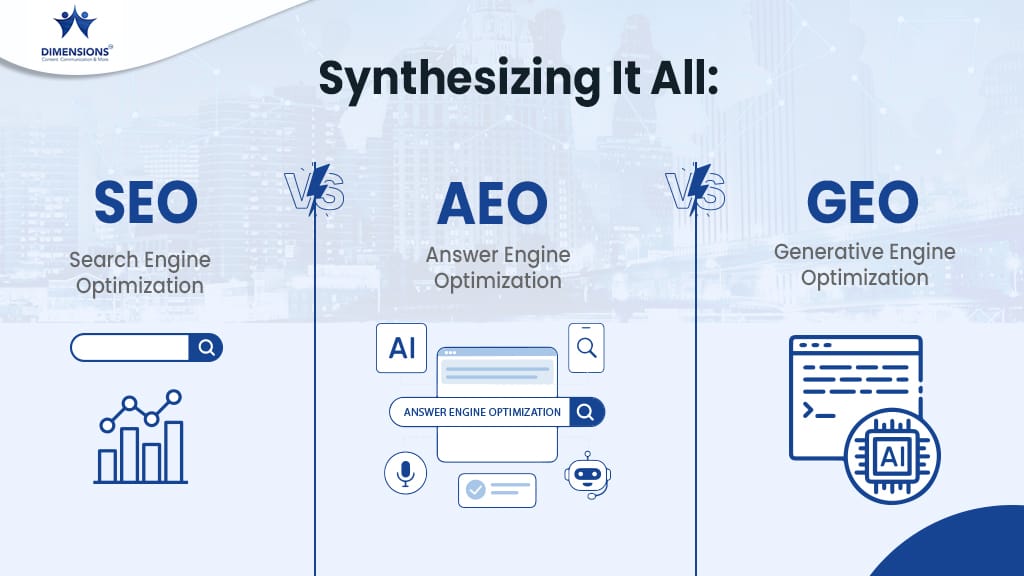The Ultimate Guide to Content Marketing
What is Content Marketing?
Content marketing is the process of creating, publishing, and sharing valuable content that relates to the audience. The content can be in any form including blogs, articles, videos, infographics, images, etc. Content marketing is important because of its immediate and lasting impacts on your brand.
Why invest in content marketing?
Here are a few reasons outlining why one should invest in content marketing:
- Content marketing will help you drive traffic to your apps and websites.
- It significantly contributes to lead generation and conversion.
- It helps you build a strong and loyal customer base.
- Content addresses customer pain points and empowers them with relevant information.
- Content marketing enhances your SEO efforts.
- It is an inexpensive result-oriented strategy that offers long-term benefits.

Types of Content Marketing
- Blogs: It is the simplest yet most effective tool for content marketing. Blogs are written content that highlights the features of products, answers how-to questions, and more. SEO plays an important role in making blogs successful and these have a long shelf life. Once a blog is published it can drive traffic for several years.
- Podcasts: These audio formats of content are often engaging and can keep the audience hooked for a long time.
- Educational videos: This is an audio-visual format of content, where the audience can see the product features while someone explains them in easy and comprehensible language. It is simple to understand and retain.
- Email campaigns: Most small businesses thrive on cold emails and email marketing campaigns. While the conversion rate may not be higher initially, however, email marketing remains a marketer’s favourite tool. These are often customized, and the content is narrowed down to a specific audience.
- Infographics: Infographics are a fun and easy way to deliver value and information through content. Information with images is appealing to the eyes and the brain easily processes it and retains it for a long time.
- Social media marketing: Content on social media is for everyone and the platform is open to all. Posting pictures, videos, reels, memes or blogs you can do it all. It has a wide reach and is the best possible way to engage the audience.
Content marketing statistics
- Before talking to a sales representative, 47% of consumers read 3-5 pieces of content published on the company’s website.
- Before making an exquisite purchase 81% of people perform some type of online research.
- The average first-page result on Google consists of 1,447 words.
- 72% of online marketers describe content marketing as their most effective SEO tactic.
- Leads from search engines have a 14.6% close rate, while the close rate for outbound leads is 1.7%.
What should be your content marketing strategy?
Content marketing goes beyond the idea of creating content. There has to be a goal that directs the efforts. Content marketing aims to navigate a content marketing plan, and you can build one in 5 steps.
- Identify the audience: The first step is to identify for whom you will make the content. Such research can include the demographic, behavioural, geographic, and other factors associated with the customer. Information about customer persona will greatly impact the content marketing strategy.
- Keyword research: Identifying the audience will help you understand what type of content will be useful and relevant for you and your customers. You can do this through keyword research. It will tell you what your customers want to know and how you can create value for them (and your brand). Today content is meaningless if it is not relevant. There is no point in making content that does not benefit your customer or they do not want to see. Keyword research unlocks the treasure trove in the customers’ minds. There are several paid and free tools that you can use for this purpose.
- Planning the content: Once you have answers to who and what, now you have to focus on how and where. Plan what type of content you want to produce and where you will publish it. If you produce fitness apparel and accessories, do you want to make podcasts and videos, or explore written content? Again, you need to decide who will create and manage the content – an in-house marketing team or a content marketing agency. In this step, you can also categorize the content into different buckets and prepare a content calendar.
- Content creation: Now that everything is figured out, you need to start making the content. Heads up, this is a time-consuming and lengthy process, that will not get immediate (desired) results. Content creation is a different ball game, and often a frustrating one. But sticking to the plan is the key to cracking the code. Do not forget to use the keywords you looked up in step 2, and integrate SEO mindfully, so your content reaches those who need to engage with it.
- Measure the success of the content marketing plan: No marketing plan is complete without measuring its success. For this, you can make a list of KPIs or key performance indicators that will help you track the performance. Some common ones include bounce rates, exit rates, page views, etc. If you are getting desired results then congratulations, your plan worked. However, in case there is dissonance you need to rework the plan or look for expert support from content marketing agencies such as Dimensions.
How do you know that your content marketing is effective?
The best way to measure the effectiveness of your content marketing strategy is by answering the following three simple questions:
- The amount you spend on content creation
- What do you spend on content distribution?
- What do you earn?
While the above questions will answer the ROI part of your marketing strategy, there are a few other non-monetary factors to consider as well:
- Whether your content is generating leads. If people are responding and contacting you, then you have the prospect of making sales eventually.
- If your content is generating sales, which you can measure in Google Analytics and your e-commerce platform.
- Traffic and onsite engagement
- Social media success
- SEO, and getting better content positions in SERPs
- Prominence and authority, both online and offline
Content Marketers to follow
We all need someone or something to be inspired by or learn through their story. For a successful content marketing strategy follow the big brothers of the industry like:
- Neil Patel
- HubSpot
- SEMrush
Mistakes to avoid
When it comes to your content efforts, knowing what NOT to do is just as important as knowing what to do.
Not looking at the data: Rather than just writing tons and tons of content and waiting to see what works, do your research first. Analyze your competitors’ websites, see which blog articles are driving the most traffic for them, and find topics that you can do a better job writing about.
Not knowing your reader: You should always write content with a specific audience in mind. Identify and define your reader so you can speak directly to them through your content.
Not accounting for SEO: Search engines drive 10x times more traffic to your site than any other marketing channel. Investing in SEO is the best way to increase website traffic and grow your business.
Not establishing content goals: You should always write to address a specific need. Is your reader in the research stage where they’re trying to gather information? Are they reading your content to make a final purchasing decision? Good content is always written with a goal in mind.
Not reviewing performance: Identifying your top-performing content is essential. That way, you can build upon your success.
It’s equally as important to analyze your metrics and know what types of content drive the most traffic, get the most social media shares, and have the highest conversion rates.
Not building links: The more links you have back to your site, the better. Ignoring links is one of the biggest content marketing mistakes you can make. If you can’t build links yourself, hire someone to do it for you.
Not hiring experts: Unless you have the time to learn everything about content marketing, it’s best to seek expert help. Hiring a digital marketing agency is one of the most effective ways to increase site traffic and improve ROI.
There’s more to content marketing than just writing and posting blogs. With a solid strategy in place, you can build awareness for your brand, see higher Google search rankings, drive more traffic to your website, and boost sales. It is always advisable to hire a content writing agency such as Dimensions to do the job in the best possible way.

Khushboo Pandey
Some people can say a lot using just a few words. Khushboo is one of them. She is the copywriting expert at Dimensions. With a Master's Degree focused on Mass Communication/Media Studies, Khushboo knows the ins and outs of what kind of content works, what kind of content touches the human heart and above all, how to write content that generates maximum revenue. She has an industry experience of 9 years.





